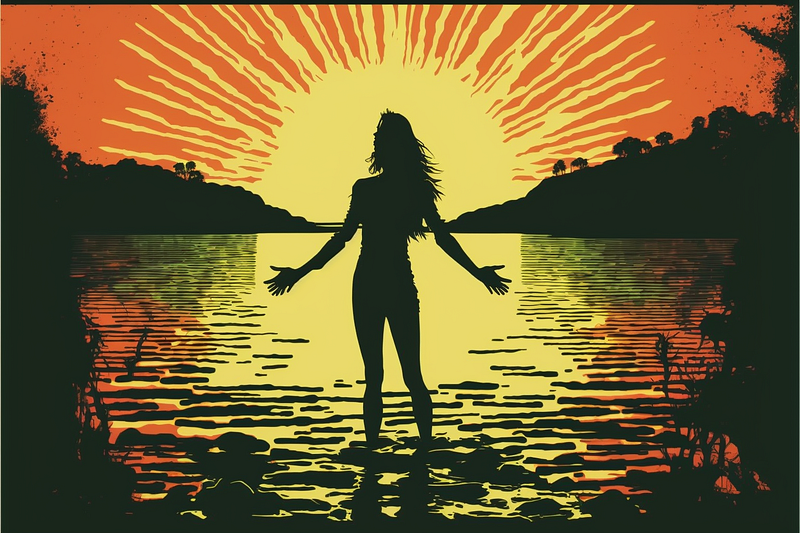Creators: The World Is Your Oyster
I had no idea how thirsty the world is for good writers

I graduated from college 15 years ago with a Bachelor’s degree in English and no intention of becoming a writer.
I’d pursued the degree because I was passionate about writing. I thought that writing skills would lend well to any career — but didn’t see myself as a professional writer.
Back in 2006, the only viable professions for writers seemed to be either a) writing a novel or b) journalism. I was interested in neither. Publishing a book seemed like a one-in-a-million chance, and journalism wasn’t my thing, especially with only a select few that reached the point where they wrote about things that truly mattered. I wanted a family, so some type of “stable” career seemed like a better route. I ended up working at a fintech.
But in 2021, I found myself itching for a change. I began to consider how I could pursue writing as a career. I became part of The Great Resignation and quit my job — before I had firmed up an alternative. It wasn’t impulsive: I had spent months researching options for a writing career.
What I discovered is that the world is desperate for good writers. There is a lot of garbage on the internet; carving out a space as a good writer could build a portfolio, an audience… nearly limitless opportunity. And, thanks to a large number of platforms, writers could successfully self-promote. I saw many writers that balanced paid client work with their own projects.
As someone who’d never previously been paid for writing, I had a lot to learn. There were so many routes, some better than others. Over the past year, I’ve dipped my toes in freelance writing, content marketing, and journalism. Here are some things I learned.
Research writing jobs
I used job boards to see what was out there, not really knowing what I would find. Since working from home is my #1 priority, I started with We Work Remotely (eventually branching out into others). Most jobs were in the marketing category.
As I scoured the job descriptions, I quickly realized that I could not apply anywhere without a portfolio of work. Potential employers were not just going to take my word for it that I could write: I had to prove it.
I found a marketing agency that was willing to pay me to churn out blog posts. Yes, it was in the “content factory” category — no expectation of high-quality work. But I could choose what I wrote about, and I stuck to topics I knew well. The key for me was that even though the pay was abysmal, I could republish the work on my own website as long as the content was de-indexed.
I did this for a few months, long enough to build up a body of work that I could share when I submitted my resume. It worked. By putting in this effort, I landed a full-time job at a content marketing agency.
Some areas of writing require specific experience, and all writers have to start somewhere. I learned that I could get that experience from a company that would hire almost anybody, put in the work to prove my skills, and use that experience to move on to something better.
Find a community of writers
Without the background in writing, there was so much I didn’t know. For example: I did not know it is common in writing to be paid per word. Also did not know what a good rate should be. I had no idea that transcription services were available for interviews I conducted.
What helped immensely was finding a group of experienced writers. Some had decades of professional writing under their belts and could advise a newbie like me. One person taught me how to write pitches. Another encouraged me to “charge what you’re worth” when I was looking to freelance for a publication. The group has a diverse range of skills, with everything from marketers to freelancers to writers working on novels.
This writing community boosted my confidence immensely. Being surrounded by a group of talented people was motivating for me. We could share everything from ideas to feedback. I was no longer on a writing island, something I often felt when I first started writing professionally.
Balance professional and personal writing
Like many writers, I also have personal projects. Some have been swirling in my brain for years as constant works-in-progress. Others are more immediate, like writing here on Medium or in my blog. I have been writing personally for years, thinking it was the only option to feed my creative brain.
When I began to write full-time as a content marketer, I quickly realized that professional writing drained a lot of my energy. I was exhausted and left with little time for my own writing. Even after months, I still found that writing all day, every day was hard.
So I left my job as a content marketer and found another role where I could rely on that experience but not write. I maintain some freelance work, focusing only on writing that I enjoy and occasionally pitching to publications. In this way, I can keep building my portfolio and maintain a “presence” in the writing world and still have time for my long-term writing goals.
Yet, I know other writers who do both. They can disconnect and think of some writing as a “day job” and protect time in their days for their own creative endeavors.
Assuming that any writer who is not a bestselling author is balancing writing professionally against their own work, some balance is required. Those that can maintain boundaries will find that they can give what is needed to “writing for others” versus “writing for themselves.”
Check out my free eCourse The Endless Idea Collector and learn how to find content inspiration for content in everyday life.





